Boliva is much more than economics datas, throughout this report we will see two approaches, the main economic part , but never without losing the initial approach that connects us to a possibility of a unique experience based on that human part, for its people, the incredible nature and all supported in a historical memory…And of course natural resources very valuable, a diamond in the rough.
Located in South America, has an area of 4241642.32mi², so it can be considered a large country. Bolivia, with a population of 11,832,936 people, is in the 80th position of the population table, composed of 196 countries and maintains a very low population density, 11 inhabitants per square kilometer. Its capital is Sucre and its currency is Bolivianos.
The Plurinational State of Bolivia, is located in the heart of South America, bordering Brazil to the north and northeast, Peru to the northwest, Paraguay to the southeast, Argentina to the south and Chile to the west and southwest. It is independent of religion. It respects and guarantees freedom of religion and spiritual beliefs, according to their cosmovisions.
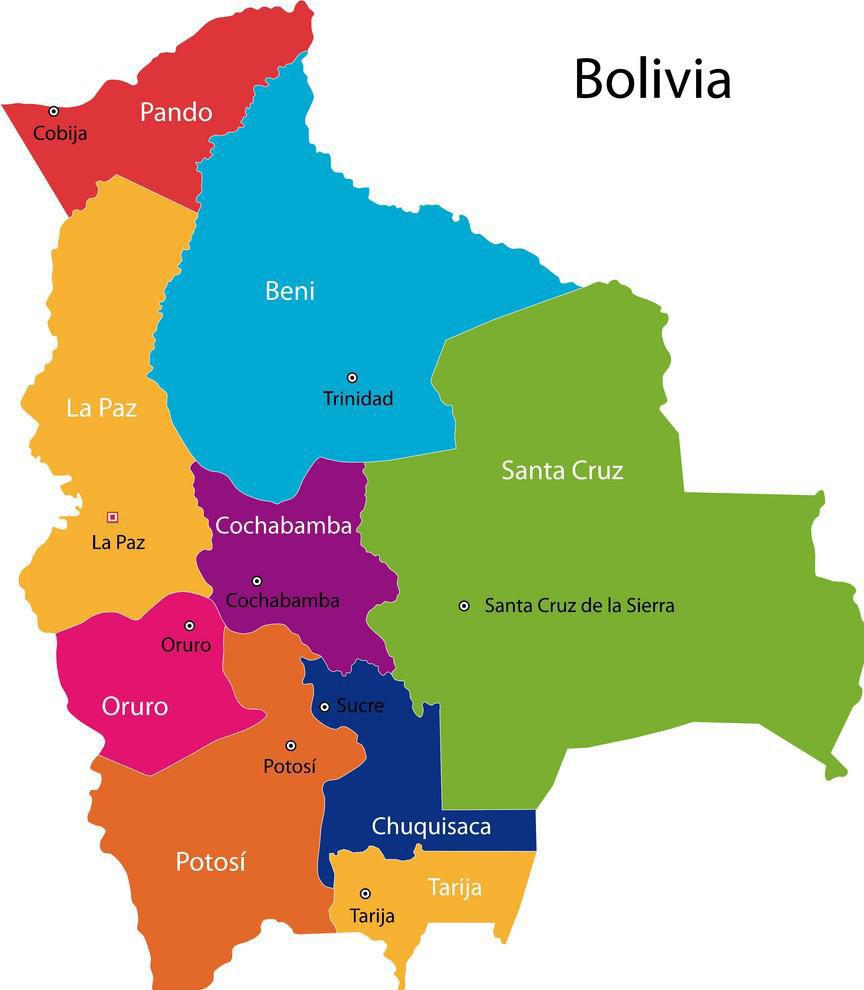
The current portfolio of World Bank financing operations focuses on transport, health, rural development and agriculture, and urban resilience sectors, including seven investment projects for near US$1.4 billion.
Political division, the country is politically and administratively structured in 9 departments and 112 provinces. Beni: Trinidad Chuquisaca: Sucre Cochabamba: City of Cochabamba La Paz: Nuestra Señora de La Paz Oruro: City of Oruro Pando: Cobija Potosí: Villa Imperial de Potosí Santa Cruz:
Santa Cruz de al Sierra Tarija: City of Tarija.
To understand Bolivia it is better not to think just with a quantitative mind, we must be more qualitative, open to feel and let our emotions connect us with our essence. Bolivia has a human dimension that if it touches you, you can feel fortunate in life.
Bolivia will teach us many things, another reality, another paradigm, we´ll learn to see life differently
have been and wasn’t . There is an ancestral legacy to resurface, that need to emerge, it is important to do it with consciousness. By the other side the cities in height and their people makes you have very special experiences.
Bolivia is amazing nature, lake Titicaca with the island of the sun and the moon at more than 3500 meters, Uyuni Salt Flats, mountain climbing and treckings “in the sacred Apus”, makes you feel you are in another state of
than we do in our home countries, is a lessons of life, a seedbed for the rest of humanity. To understand the potential of the country, you have to connect with life... from the dimensions of the territory, the contrast with the population, its society, the human talent of the workers, their humility, charm and spirituality.
Bolivia is history, a culturally attractive country with ancestral wisdom, from Inca Pachacutec, Wiracocha, Tiahuanaco, all the knowledge that holds the past of the Inca traditions, like the perfect cuts in the stones, how they have been possible? the ruins of that intelligent culture, all that could
consciousness.
In this report we will see companies such as strategic partners that offer support and strength to develop the great potential found in Bolivia, in sectors such as construction, energy, finance and insurance, trade & agricultural business and technology, helping the development of Bolivia and its people.
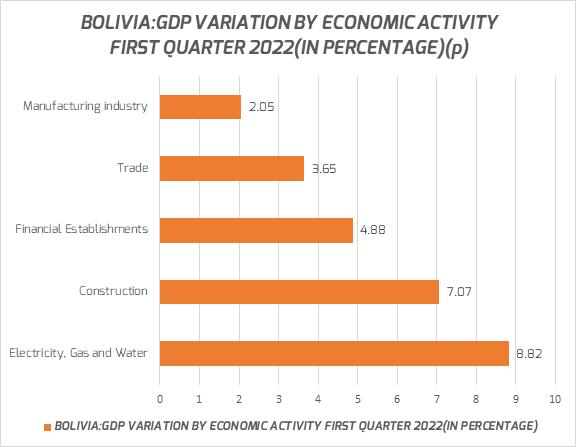
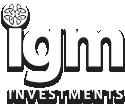
In 2025, Bolivia will celebrate 200 years since its founding, it´s time to think farther, take action and become a part of the entrepreneurs in this new discovery to reach the legacy of and ancient culture and connect it to the 21st century.
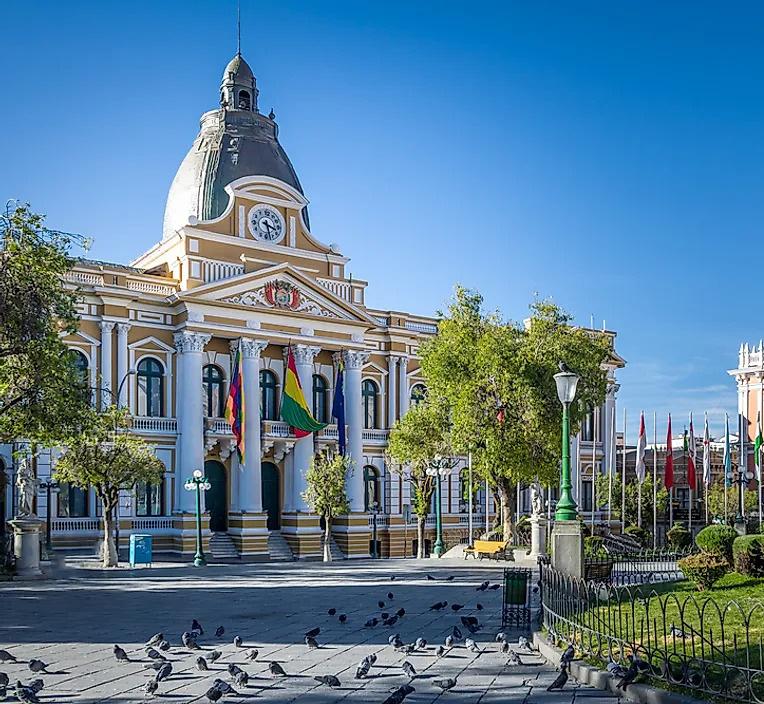
BOLIVIA Advertising Supplement IGM Investments Independent Supplement For Los Angeles Times. Publisher :IGM INVESTMENTS. Latin America Director: Margarita Fernández Directora: Patricia carola Larrain Periodista: Valentina Virreira IGM Investments Independent Supplement For Los Angeles Times. www.igminvestments.com Tecnology Construction Agribusiness & Trade. Finance & Insurance Hydrocarbons & Energy. P. 7 P. 8 P. 2 P. 4 P. 6
legacy to be discovered...
A
Official name: Plurinational State of Bolivia President: Luis Arce Catacora Population
11.83 million Surface:
sq. km Official languages: Spanish, Aymara, Quechua, Guarani and a variety of indigenous languages Currency: Bolivian Peso (BOB) GNI per capita 2022: 3,360 Unemployment rate: 4,2% Annual Growth 2022: 5,1% Human Development Index: 107 Member of: UN, OAS, UNASUR, CAN, Rio Group, WTO, LAIA, WB, IDB, CAF, ALBA, FLAR, SELA, CIN, OEI, IUCN, Latin Union, NAM.
(2022):
1,098,580
The Gross Domestic Product (GDP) of Bolivia registered a growth rate of 3.97% in
the first
quarter
of
2022, a fact that reflects that the country has a stable economy and describes a path of sustained economic recovery, as a result of the measures of economic reactivation implemented.
Source: Instituto Nacional de Estadística (INE) , September 09, 2022 Bolivia
Union means strength
As a direct consequence of the reactivation of the Bolivian economy, the Commerce sector increased its tax contribution to Bs3,386.2 million between January and May 2022, compared to the same period last year, when it paid Bs3,019.1 million.
In percentage terms, Commerce increased its fiscal contribution by 12.2%, which means that this economic sector contributed Bs367 million more to the public treasury in the first five months of
out of the owner’s home, who in 60% of cases serves customers directly, and in 36% delegates responsibility to a close relative. 67% of traditional points of sale are attended by a single person who the points of sale close at midday; the rest are open around the clock. It is a very dynamic sector, opens their doors after seven in the morning and closes them before nine in the evening.
The profitability levels of white goods retail companies historically maintained a positive trend. Despite the impact of the pandemic and the closing of sales branches in 2020, in 2021, due to the accumulated demand during the quarantine, the sector reactivated significantly, even surpassing pre-pandemic sales levels. It is worth mentioning that these companies maintain seasonality in their revenues during the Christmas season, Mother’s Day, Black Friday and liquidations.
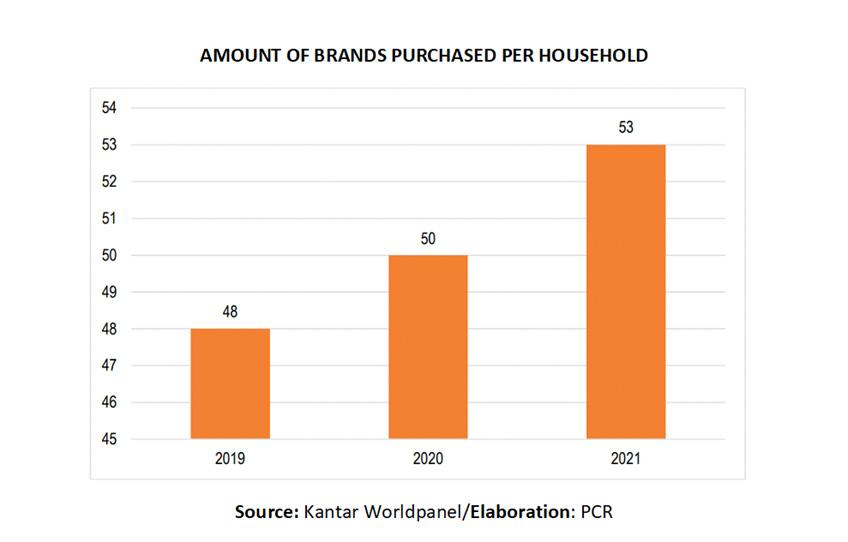
Dismactec, is one of the few companies in the retail sector with “25 branches, close to 400 employees and our growth rate is 2 digits during the last 8-9 years. We have a first class team very focused on quality”. LUIS


 FERNANDO SAAVEDRA GERENTE
FERNANDO SAAVEDRA GERENTE
GENERAL DISMATEC S.A. “our main
the widest mix of categories The second is the possibility of purchasing in installments, which has helped a lot because they are high value goods, the ability to give flexibility to the home to improve the quality of life is important. The third point is the guarantee of low prices, if the customer finds a lower price in another formal store, we match it, and we give an additional 20% discount.Another important point is that Dismac does not sell anything that is not of good quality, We ship to your home at no cost, , we also provide installation service and guaranteed technical service at home because we guarantee the proper functioning of their products, so our customers have a comprehensive solution to the family.
US link It is very relevant, among the American brands The US is a great partner with whom we are going to strengthen our relationship. I hope that you give yourselves the opportunity to visit and get to know Bolivia, which has a lot to offer, it is a culturally attractive country with a lot of potential.
In recent years the agri-food market have experienced a colonization of western countries, and practically all continents, thanks to the miracle of quinoa.
Companies like Irupana are pioneer in the export of quinoa. “This has had a great impact on the Bolivian economy and has the potential for growth”, as FERNANDO PINELL GENERAL MANAGER from Irupana says “Without fear of being wrong, I can say that we were the first to have exported quinoa to the world” the idea was born of Javier Hurtado and Martha Cordero “is that initial channel between the producer and the final consumer, guaranteeing food products whose processes are endorsed from the raw material. with added value for local and export markets”.
“gives us a very important comparative advantage in experience and knowledge of the product as well as knowledge of the producer and the market”.
2022, compared to May 2021. ca each country is at a different stage of retail development, and these are the windows of opportunity for investment. According to the “2021 Global Retail Development Index”, Bolivia is ranked No. 23 in the Top 35 countries with the highest growth in the retail sector worldwide.
The trade sector in Bolivia has a strong family and entrepreneurial character, 97% of the traditional points of sale are autonomous and do not depend on a parent or central store. In fact, 72% operate
business is to improve people’s quality of life and we do this by allowing installment purchases, providing adequate guarantees, accepting returns, promoting access close to the family and making it available to all social strata. Bolivia is very backward in all this, if we did not give added value we would not be able to compete against smuggling in the country”. In these categories, more than 60% of the market is informal because tariff rates encourage more smuggling.
Among the advantages we have
Nowadays few people do not know about the benefits of Quinoa, as super foods, from its fame as the food for astronauts, its high protein content, prevents diseases, good for diabetics, and so on ... And talking about Quinoa is talking about Bolivia and its development, so it is important to support this local product, exporting an amazing 29,000 tons per year, raising more than 62 million dollars annually.
The “passion of the Andino grains”, since there are also other cereals such as amaranth or cañahua, which provide many properties and health benefits, and have yet to be discovered in foreign markets..
Other fundamental crops grown in Bolivia are rice, corn, oats, wheat and oats. And as strategic crops to consider are wheat and fruit trees, and highlighting soybeans and derivatives as the main export products with 1,144 million dollars.
“The U.S. is our most important quinoa export market because more than 40% goes to that country. Our customers in the U.S. are very important to us and the relationships we have built up have been very significant in recent years”.
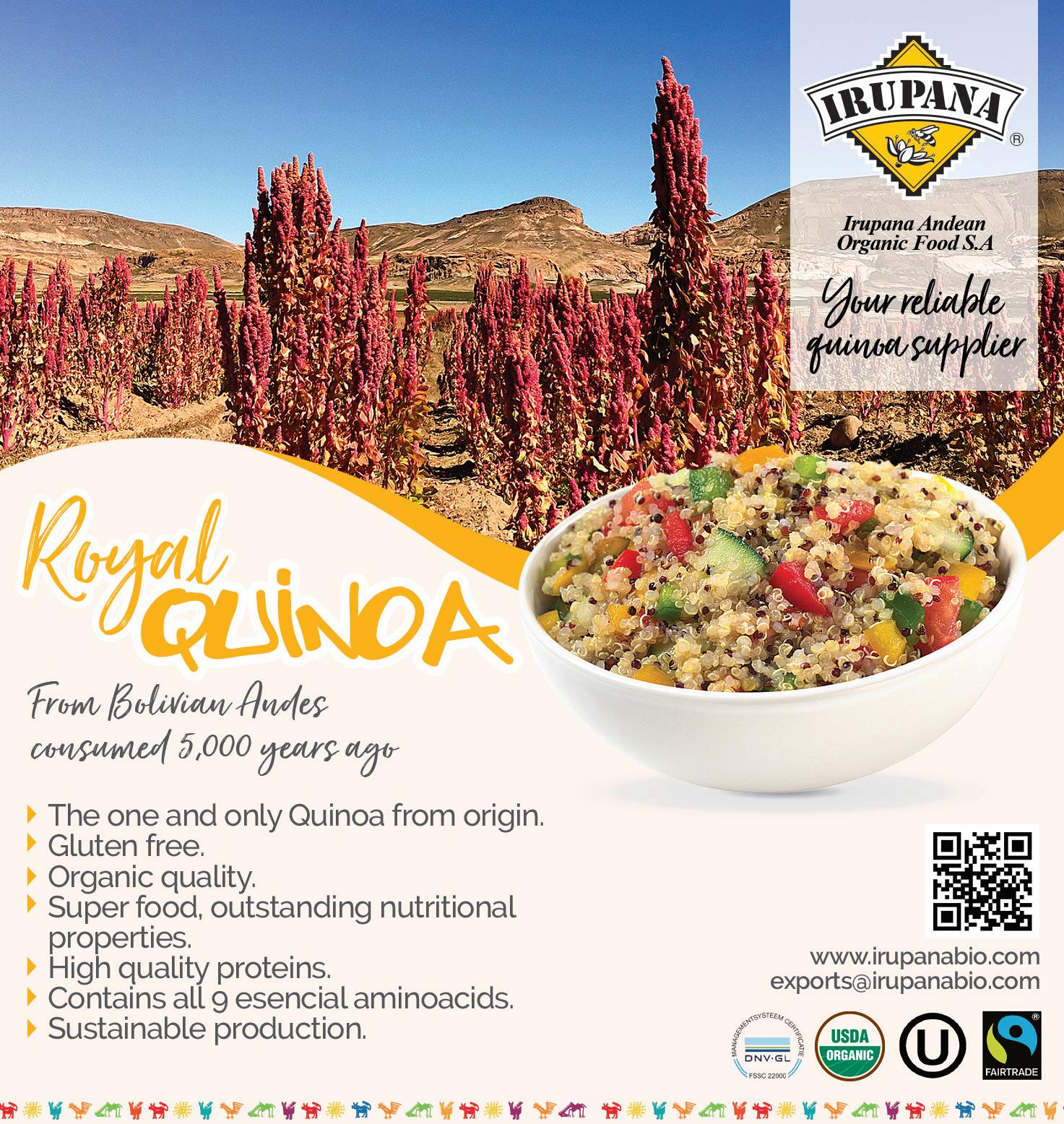
“There is still work to be done, it is important to continue developing certain areas of the country. Speaking of the west of the country: La Paz, Oruro, Potosi and some of Cochabamba have not had the same development and that is where Irupana plays an important role, especially with Quinoa, which is a product originating from this side of the world.
Companies like Irupana is a nice story, it was a company that did not have the objective of profit, the main objective was to serve society and the main actors that
The development of local economies by helping the country of origin, and in this case being competitive since being pioneers , like financial assistance to the sector, such as from the World Bank, which approved a US$300 million loan that will benefit close to 130,000 families in rural communities and producers in Bolivia.
The financing will help increase food security, market access, and the adoption of climate-smart agricultural practices in the country.
are the producers of the field and consumers, products that do us a lot of good and that were being lost at that time.
More than 100 people work directly in Irupana, but there is a lot of indirect work involving thousands of families producing quinoa and other products such as coffee, honey and others. Prenatal, Breastfeeding and Universal Subsidy, School Breakfast”.
Advertising Supplement IGM Investments Independent Supplement For Los Angeles Times. “This supplement is printed and distributed in select areas by THE LOS LANGELES TIMES. It does not envolved the editorial staff of THE LOS ANGELES TIMES” Agribusiness & Trade. 2
Luis Fernando Saavedra Gerente General DISMACTEC S.A.
Fernando Pinell Gerente General IRUPANA ANDEAN ORGANIC FOOD S.A.
The final customer will be demanding more from the retail sector, guarantees, financing and customer service, and later on companies will have to start working on customer experience.
The passion and health benefits of the Andino grain make the agricultural sector a very interesting sector for the western consumer very concerned about their health and wellness.
According to the analysis carried out by the Kantar Group consulting company, Bolivian consumers in 2021 were more attentive to changes in prices and promotions, in order to take care of household consumption. Consumers choose three brands on average at price discounts, brand loyalty aside. In Bolivia, the number of brands entering the home is increasing, showing that there is room for greater penetration of brands in consumers.
Source: Kantar World Panel / Elaboration PCR
Bolivia is a member of the General Agreement on Tariffs and Trade (GATT) and of the WTO. Bolivia is also a member of the Andean Community (CAN) along with Colombia, Ecuador, and Peru.
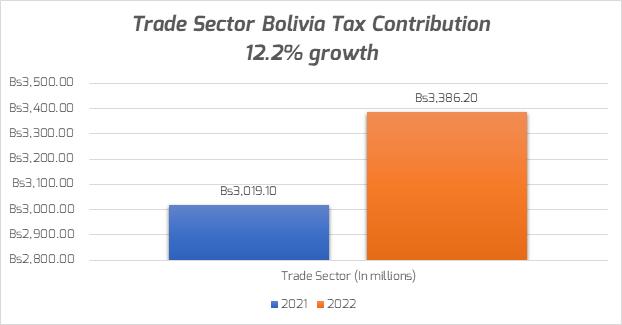
The CAN agreement has significantly reduced most internal trade barriers between

to reach the economic revival of a country has to come the supporting of all the actors, that is through the participation of all industries and sectors.
The economic growth in Bolivia is considerable and encouraging, especially in some sectors that are pointing to very interesting numbers, such as finance, construction or mining. Bolivia is in expectant situation because there is confidence in the economy.
“Our country has the economic conditions and qualified human potential for the development of production; it also offers legal security to attract investment through various socio-economic measures that have been approved in recent years.
As SUMMA LAWYERS & CONSULTANTS PEDRO ALVAREZ VILASECA DIRECTOR PARTNER points out, “My partners have a deep

The current moment is perceived as a very attractive opportunity to invest in Bolivia, focusing as a country of opportunities that has great resources.
these countries. Along with Chile, Colombia, Ecuador, and Peru, Bolivia is an associate member of the Common Market of the South (MERCOSUR), with full incorporation pending.
The full MERCOSUR members include Argentina, Brazil, Paraguay, Venezuela, and Uruguay. MERCOSUR has virtually eliminated tariff and non-tariff barriers on most intra-regional trade between members via a Common External Tariff (CET) system. Associate members enjoy tariff reductions but are not subject to the CET system. Bolivia has had a “complementary agreement” with Chile (ACE 22), Panama, Cuba and with Mexico (ACE).

These agreements eliminate or reduce tariffs on explicit lists of products. Bolivia is also a member of the April 2006 “Peoples’ Trade Agreement” (ALBA), founded by Cuba and Venezuela. Thre are attractive opportunity to invest in Bolivia, hardworking and honest people who are willing to join forces with people who want to invest to achieve common benefits. And the optimal way
knowledge of the hydrocarbon, energy, mining, transportation and telecommunications sectors.
Lithium represents a major advantage, in the development of a high demand for lithium batteries and our country is one of the 3 countries that make up the lithium triangle in South America with a great potential for exploitation and production on a very high scale. This possibility implies the need to attract foreign investment that can be perfectly feasible from the USA”.
One of the factors that differentiate us from other firms that work in the same sectors as we do is that the partners that make up this law firm are professionals who have worked in the public and private sectors.

We have the advantage of knowing the vision of the government from the public administration side and we know the needs of the private businessman. That is our added value that we want to offer to our clients, joining both visions so that we can achieve alliances that benefit both sides
The particularity of B2B is mainly taking care of the customer, it is very important to understand the customer needs, it is also important the purchase decision in B2B business models is usually more rational than impulsive, and is influenced mainly by aspects such as: Specifications and Assessment. As more expensive solutions, in general, B2B buyers are also demanding and selective, so they do a lot of research before showing interest.
Price, Warranty, Speed, Capacity. Also keep in mind that, in general, the conversion objective of a B2B portal will focus on obtaining leads (prospects) that the sales team will then be responsible for managing and converting into customers or suppliers. B2B sales do not end with the signing of the contract. After-sales is essential to ensure the company’s success with the purchased solution. Therefore, once the sale is completed, the company must invest in good customer service and keep in touch with the customer, thus ensuring contract renewal and even possible referrals from other customers.

The Bolivian pharmaceutical market has experienced years of strong expansion as a result of the country’s economic boom, improved living standards, greater concern for well-being, continued investment by both the state and private laboratories, and the rapid expansion of distribution chains throughout the country.
The president of the Chamber of the Bolivian Pharmaceutical Industry states that the sector generates 400 million USD per year, estimating that the national industry represents 30% and imported products the remaining 70%...20% of these products offered in the market come from illegal trade, according to the study “The market of pharmaceutical products in Bolivia” of 2021.
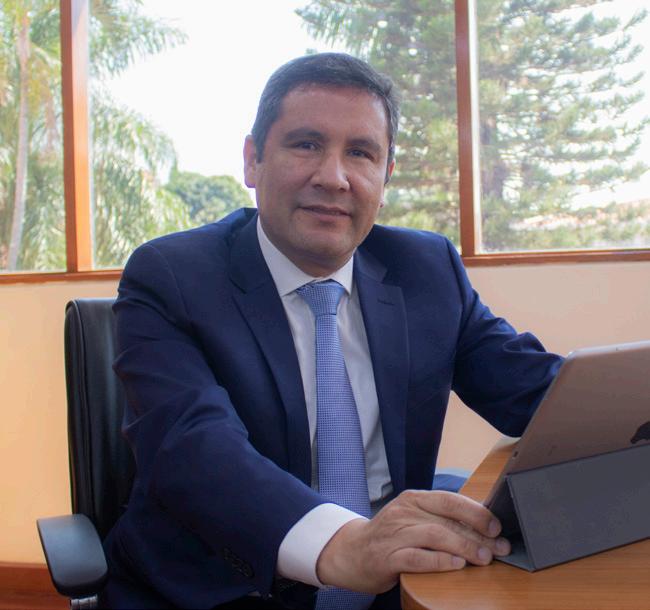
The government’s efforts are clearly reflected in the implementation of the Unified Health System (SUS), approved in 2019 to expand the population benefiting from free health care and move towards a Universal and Free Health System. Public spending on healthcare for 2021 was 10% of the General State Budget, or 21,835 million Bolivianos (just over USD 300 million), which represents per capita spending
Bolivia’s economic development must be the result of the union of the different sectors of Bolivian companies.
like PATRICIA LOPEZ GENERAL MANAGER ZEPOL says. “Our sales staff has a very technical and extensive knowledge, to assist all our customers from the first contact, until the delivery of their final product. Some customers who are large companies with years of experience, are very clear about what they want and how they want it. On the other hand new and small clients we do counseling with them”.
“because this way we can support each other among Bolivian companies, which is the key to move forward as a country and for each company to have the pride of being Bolivian, including government aid”
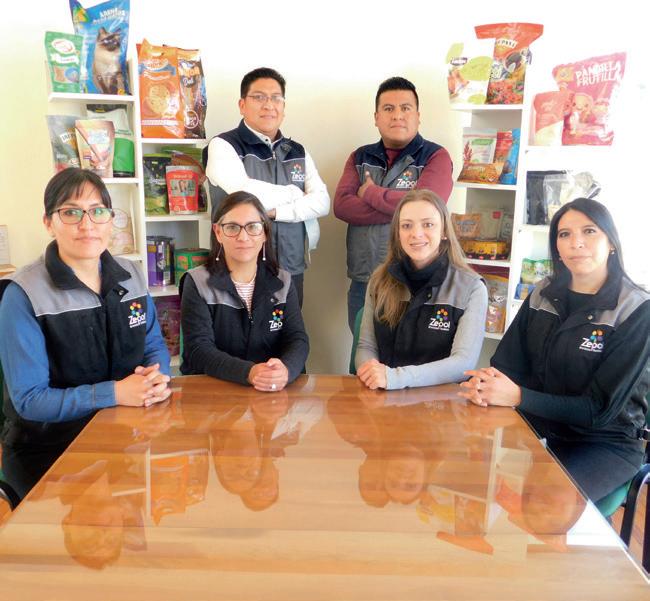
“Each package is manufactured according to what it will contain inside, with different characteristics, the image that the company wants to give through the packaging. our customers have a vision of what the packaging should look like, our mission is to understand that vision and make it a reality”.







“Is not only our work, time and turnover, but also the families of our workers, our industrial environment, our neighbors, the economy of the country and many other factors. Our environmental impact reduction project is the most relevant project for the future, under development for the recycling reduces the impact of our waste on the environment, and that the product packaging also has a utility, reuse. The relevance that the U.S. has for us are potential strategic partners who can be suppliers of raw materials, inputs and technology, especially suppliers who can help us develop alternatives with a lower environmental impact”.
of USD 445.8 and 7.7% of GDP in 2021. The increased purchasing power of a large number of people results in higher consumption of medicines and health services.
Considering the entry and exit of medicines into and out of the country, Bolivia is clearly an importer of medicines. Although it has an important pharmaceutical industry, capable of satisfying 76% of the demand for medicines, it is dedicated to the manufacture of generic drugs. More complex and higher value-added molecules that require cutting-edge technology, such as oncology, AIDS or diabetes treatments, have to be imported.
At Megalabs SILVIO NUÑEZ BUENO GENERAL MANAGER “Last year’s turnover was USD 37.5 million; this year we expect to reach USD 42 million.Our function is not only to commercialize medicines, we have our Corporate Social Responsibility plan based on three fundamental pillars: health, environment and solidarity. Internally we take great care of the work environment, this is the third consecutive year that we are certified by Great Place to Work. This year we are ranked number 1 in the category of 101 to 700 employees, being the best place to work in Bolivia, and in relation to the ranking for women, we are ranked number 2. A very important recognition, because we believe in gender equality and equity, both women and men in our company have equal conditions in relation to their remuneration and it is in accordance with the position they occupy in the company. We have many female leaders and 65% of our staff is female. We are proud that our female employees feel empowered.
Our policy is to achieve a good working environment where people come to work happily and this is reflected in our latest recognition, ranking us number 9 in the ranking of the best places to work in Latin America”.
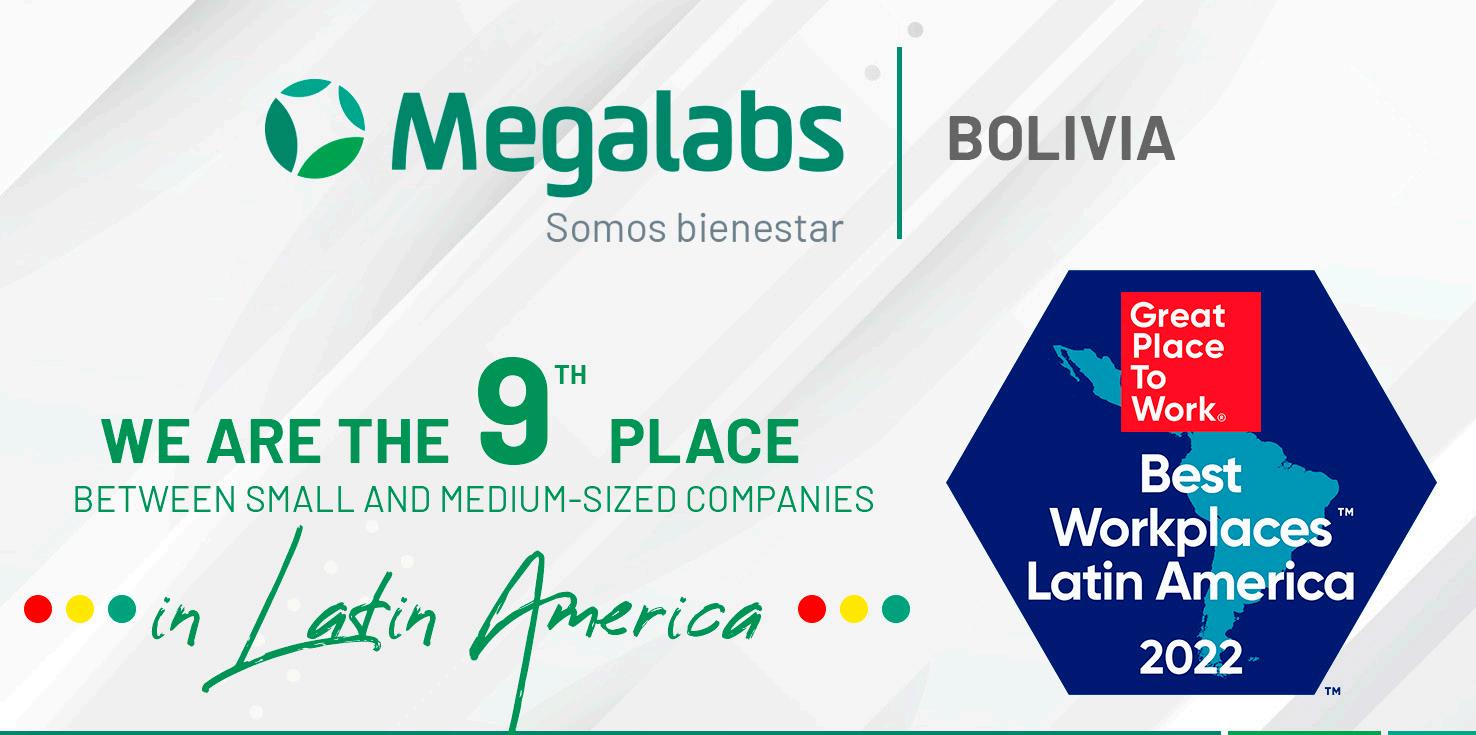
Advertising Supplement IGM Investments Independent Supplement For Los Angeles Times. “This supplement is printed and distributed in select areas by THE LOS LANGELES TIMES. It does not envolved the editorial staff of THE LOS ANGELES TIMES” Agribusiness & Trade. 3
Pedro Alvarez Vilaseca Socio SUMMA ABOGADOS & CONSULTORES
Patricia Lopez Murillo Gerente General ZEPOL ENVASES FLEXIBLES
Silvio Nuñez Bueno Gerente General MEGALABS
In percentages, the Commerce sector increased its tax contribution by 12.2%; In other words, this economic sector contributed Bs367 million more to the public treasury in the first five months of 2022, compared to May 2021.
Source: Economy.com.bo
SEGUROS
Financial Security
At December 31, 2021, the country’s insurance sector is made up of 19 companies, ten for General Insurance and Bonds (Property and Casualty) and nine for Personal Insurance (Life). In the last five-year period (2017-2021), a high level of competition can be perceived among the General Insurance and Surety (Property) companies, where the four main participants have an average of 78.51% of participation in their modality. A similar scenario is presented for the Personal Insurance (Life) companies, where the four main companies accumulate an average share of 78.16% of their sector.
The insurance sector in Bolivia comprises two types of insurance companies: General Insurance and
Throughout the last five-year period (2017-2021), in the General Insurance and Bonds (Property and Casualty) modality, the ROA and ROE profitability indicators reflect a variable behavior, which presented a greater contraction during the 2020 and 2021 periods as a result of the effects of the COVID-19 pandemic, with average results of 5.21% and 15.23%, respectively. In relation to the Life Insurance sector, the profitability indicators show a similar trend, with average indicators of 1.02% and 4.01% for ROA and ROE, respectively. At December 2021, in the General Insurance and Bonds (Property and Casualty) modality, values of 3.52% for ROA and 10.59% for ROE are presented; as for Personal Insurance (Life), the ROA recorded is -1.58% and ROE -6.34%, registering the lowest levels in recent years, due to the high loss ratio recorded and lower Net Direct Production of Cancellations.
“A customer-focused approach is very important for us. The insurance market is growing, traditionally it is growing more than the economy, which means that it is penetrating more into society despite the fact that it is only 2% of GDP, which is relatively very low for a developing country. In health insurance, more work must be done to create products and offers to reach more underserved segments because our problems are not in the upper or upper middle class where we
Through our Corporate Social Responsibility programs we give a lot back to society for the trust they place in us. We have many programs; we work in three main areas: education, health and sports.
What we have to do is to work together in helping the government to create standards because at the end of the road the regulated should encourage the regulator to create certain standards.
The U.S. is a market to follow, it has a lot of penetration in insurance. We learn a lot from them and we try to have our executives and personnel trained by companies there, our company is based
on innovation, qualification and training. We have an agreement with an American company that trains all the insurance companies in Latin America. It is something very important for which we are

always strengthening bilateral commercial relations, human resources development is one of our core competencies.”
I recommend continuing to invest in this country and in South America. The other day I saw a report indicating that this is one of the regions that will grow the most in the coming years in terms of GDP and has the greatest potential, not only in economic resources but also in services”.
Bonding Companies (Property and Casualty) and Personal Insurance Companies (Life).
“Life is the market leader, we have 30% of the market share, a leadership that has been maintained for the last 11 years.
In 2021 we will close with USD 150 million in sales. We have close to 450 employees and more than 600 salespeople. Our main competitive advantage is our culture JORGE HUGO
have a very significant insured population. What we must attend to is the middle and lower middle segments where normally access to quality health services is very restricted.”
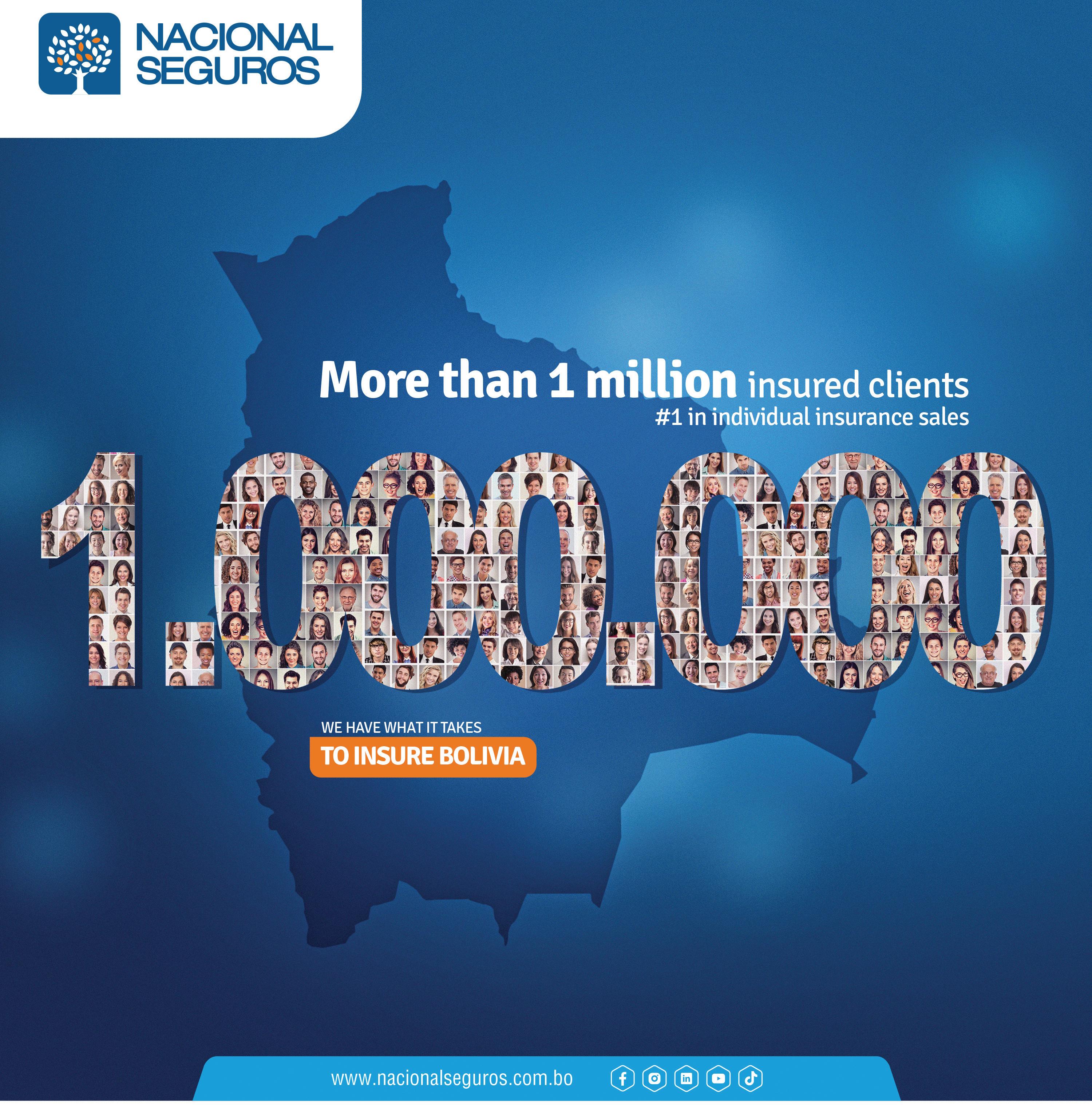
Our natural market is Miami, we also work with Europe, even the contact points of European reinsurers are in Miami. We invite foreign and North American investors, who know very well what venture capital is, here they will have a country that offers many business opportunities..
Throughout
As of December 2021, in the modality of General Insurance and Bonds (Patrimonial) values of 3.52% are presented for ROA and 10.59% for ROE; Regarding Personal Insurance (Life), the registered ROA is -1.58% and the ROE is -6.34%, registering the lowest levels in recent years, due to the high registered claims and lower Production Direct Net of Cancellations.
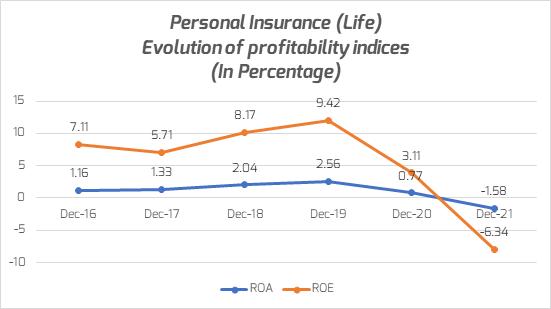
Source: APS Elaboration PSC S.A
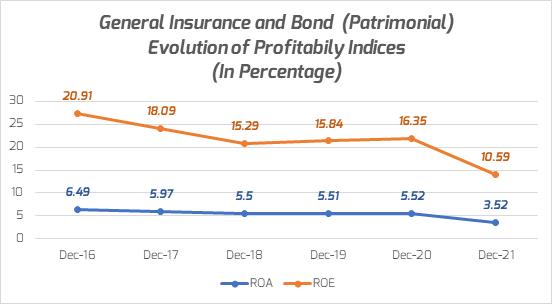
Advertising Supplement IGM Investments Independent Supplement For Los Angeles Times. “This supplement is printed and distributed in select areas by THE LOS LANGELES TIMES. It does not envolved the editorial staff of THE LOS ANGELES TIMES” Finance & Insurance 4
Jorge Hugo Parada Gerente General NACIONAL
PARADA GENERAL MANAGER NACIONAL SEGUROS VIDA Y SALUD S.A.
Concern for the environment and corporate social responsibility is at the forefront of the minds of the leaders of Bolivian´s companies.
Bolivians living in the U.S. or Europe, despite living abroad, are highly valued as customers for these companies.
the last five years (2017-2021), in the General Insurance and Bond (Property) modality, the Indicators of Return on Assets (ROA) and Return on Equity (ROE) reflect a variable behavior, which presented greater contraction during the 2020 and 2021 administrations due to the effects of the COVID-19 pandemic, with average results of 5.21% and 15.23%, respectively. In relation to the Personal Insurance (Life) sector, profitability indicators show a similar trend, with average indicators of 1.02% and 4.01% for ROA and ROE, respectively.
According to interannual figures registered between January and February of this year by Trading Economics, Bolivia is the country with the lowest inflation in the region. Recently, the Central Bank of Bolivia presented a Monetary Policy report for January 2022, where it highlighted the exchange rate stability, the economy with sustained growth and low inflation.
According to the report, the figures achieved in the period were thanks to the policies implemented by the Bolivian government in 2021 so that the country now enjoys exchange rate stability and can project an economy with growth and lower inflation.
It is estimated that economic growth in 2021 would be around 6% and by 2022 growth would be 5.1%. Regarding inflation, for 2022, it would be between 3.3% according to the dynamics of the country’s economic activity.
The insurance industry has undergone a profound transformation. Companies have remarkably met the challenges posed by COVID-19. The industry
has met its commitments to customers; it has been able to cope with unprecedented business interruptions; and it has demonstrated its relevance in a time of deep crisis.
Now is the time to look at where the industry is headed and what long-term changes are needed to address the macroeconomic consequences of the pandemic; environmental, social and governance issues.
As consumer expectations evolve and the industry transforms, insurance companies will have to choose their own path to contribute to a new vision for the industry. Whatever their trajectory, those companies that anchor their strategy around their social purpose, transform their business model to meet new customer needs and develop an agile, technology-driven organization will create competitive advantages that will differentiate them in the marketplace.
With a focus on purpose, trust and transformation, the evolution of the industry in the coming years will be key for all players in the insurance industry ecosystem…
SEGUROS
Consumer Price Index (CPI) in Bolivia in March 2022 was 0.8%, 1 tenth of a percent higher than that of the previous month, and the monthly variation of the CPI was -0.1%.On the other hand, several Bolivian media reported that the Minister of Economy, Marcelo Montenegro, recently explained that the Social Productive Economic Model implemented by the Government allowed Bolivia to recover the path of economic reactivation and reconstruction.
greater inflationary pressures in the region, as well as the increase in energy prices and fertilizer shortages; however, it also assumes growth opportunities for food exporting countries.
The Bolivian banking system is made up of the Central Bank of Bolivia, 2 financial entities, -owned or majority-owned by the government 13 multiple banks, 3 SME banks, 7 housing financial entities and 28 open savings and credit cooperatives and 7 Development Financial Institutions (DFIs). The conglomerate of complementary financial services companies is made up of leasing companies, general deposit warehouses, information bureaus, clearing and settlement chambers, mobile payment service companies, money transfer and remittance companies and exchange bureaus.
At the national level, the Ministry of Economy and Public Finance (MEFP) maintains at 5.1% the projected GDP growth for 2022, higher than the World Bank’s projection for the country (3.9%) and that of the IMF (4.0%). In this sense, the national economy’s expansion forecast would be above the South American average (2.3%), being one of the most outstanding.
Meanwhile, family remittances received from abroad, as of June 2022, amounted to USD724 million, 5.9% higher than the amount observed in the same period of 2021. By country of origin, remittances came mainly from Spain (30.8%), Chile (23.3%), the United States (19.9%), Brazil (5.5%) and Argentina (5.3%).
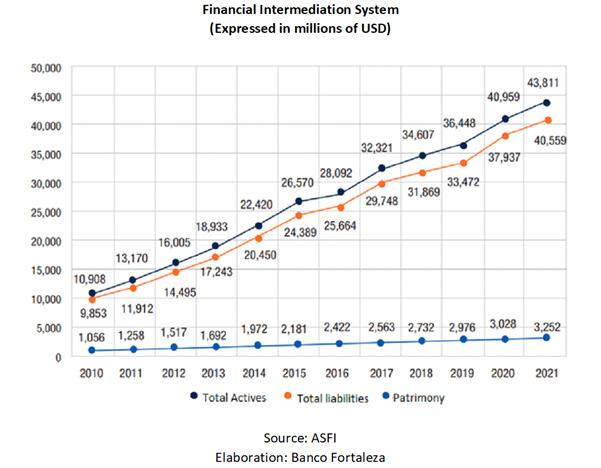
Capital markets need to be tapped to attract additional sources to help finance development goals, which are expected to require “trillions of dollars” in financing. Financial stability, both globally and domestically, generates jobs and improves productivity. It gives people confidence to invest and save. Sound banking systems and capital markets enable the efficient flow of funds to more productive uses, help governments raise investment capital, maintain financial safety nets, and speed payments safely across borders.
Good access to finance improves a country’s overall well-being by enabling people to prosper and better manage their needs, expand their opportunities and improve their living standards. When people are included in the financial system, they find it easier to manage consumption, payments and savings; have greater access to housing, health care and education; start a small business; and use insurance mechanisms to protect themselves against crises.
Financing also helps level the playing field, making wealth and connections less important.
Cumulative inflation as of June 30, 2022 was 1.2%, the lowest in the region (the variation between May and June was 0.4 percentage points), while the exchange rate against the U.S. dollar remained unchanged.
At the end of the first half of 2022, a trade surplus of USD1,221 million was recorded, as a result of a 38%
GUIDO HINOJOSA PRESIDENT OF BANCO FORTALEZA “There is a huge population of Bolivians who have emigrated for lack of work or for reasons of insecurity and who work in the U.S. or in Europe, Italy or Spain, and send remittances that we are trying to canalize as much as possible through Anchor and then here in the case of the U.S. and for Europe through Western Union.That is why we are making a database of all those who are residing abroad and where there is a concentration of Bolivians because they periodically send small savings, sometimes to pay debt, sometimes to save or to buy land or a house.

We as a national bank can
Unlike in the rest of the world, inflation is not being so severe for Bolivia.
 LEO FLEIG GENERAL MANAGER ASESCOR S.R.L.
LEO FLEIG GENERAL MANAGER ASESCOR S.R.L.


“We have presence
in the trunk axis, Santa Cruz is the main headquarters, we are in Cochabamba and La Paz. Our annual growth perspective is between 10% and 15%. Our main focus is to support companies and individuals, so we are going to say that growth is a result of the service we provide. we have the purpose of having work teams that attend each businessman or each person and give them the best possible attention.
We do something different and that is to know the activity of each client. We go beyond just recommending, we try to make sure that things are done well, mainly in the evaluation part, which is one of the great problems of insurance because the accounting values are confused with those of replacement to new, insufficient limits, guarantees that some insurances have.
We belong to the Brokeslink network which is in 130 countries including the U.S., within this network is the Broker Alliant Insurance which has a very good positioning”.
It should be mentioned that the annual variation rate of the
Capital markets are becoming essential for financing infrastructure such as roads,
electricity plants, schools, hospitals and housing, and to help manage unpredictable risks. They are increasingly relevant to the Sustainable Development Goals, as achieving many of them will require long-term financing that traditional sources will not be able to cover. To help achieve these global goals, there is a need to attract private sector investment and financing to help fill the huge resource gap.
By December 2021, the accumulated GDP reached 6.11% and the main sectors that contributed to the economy showed positive variations.
The sectors with the highest impact were Transportation and Telecommunications (1.60%), Metallic and non-metallic minerals (1.35%), Manufacturing Industry (0.66%), Construction (0.64%), Trade (0.56%), Taxes (0.42%) and Agriculture, Forestry, Hunting and Fishing (0.26%).
According to the International Monetary Fund (IMF) Economic Outlook Report, Bolivia is projected to grow by 3.80% in 2022 and 3.70% in 2023. Among the risks identified are the conflict in Ukraine, which will generate
increase in the value of exports compared to the same period last year, reaching USD7,012 million. Exports in the category of industrial supplies (USD2,739 million) stand out, through trade in basic goods (58.7%) and processed goods (41.3%). Imports reached USD5,792 million, increasing by 39% compared to June 2021, growth that is explained 3 In April 2022 Shanghai entered into a strict confinement that paralyzed economic activities for about two months. 3 largely by purchases of fuels and lubricants (up 143.1%), followed by industrial supplies (23.4%) and transportation equipment and its parts and accessories (22.0%).
complement by giving the necessary support to materialize their dreams. We want to be their vehicle of capital transfer of resource allocation to help complement their project, generate loyalty and continue to make these small, safer and profitable transactions. If there is interest in making investments in this bank or in the group they are welcome and we, knowing the country, are sure that we can guarantee their return.
We have made an agreement with Western Union and we are trying to focus our attention on places where Bolivians are concentrated”.
Advertising Supplement IGM Investments Independent Supplement For Los Angeles Times. “This supplement is printed and distributed in select areas by THE LOS LANGELES TIMES. It does not envolved the editorial staff of THE LOS ANGELES TIMES” Finance & Insurance 5
Guido E. Hinojosa Presidente BANCO FORTALEZA
Leo Fleig Linale Gerente General ASESCOR CORREDORES DE
The current world situation of crisis, Bolivia is perceived as a very attractive opportunity to invest.
The financial sector plays an essential role in the proper functioning of social welfare.
other sectors such as construction, transportation, among others. The foregoing determined that the Financial Intermediation System (SIF)1 decreased in the first quarter of the year, to later recover its dynamism, although with less momentum. In the 2021 term, the system’s gross portfolio increased by USD 2,286 million (7.1%) while in the 2020 term it increased by USD 4,228 million (15.1%), although also supported by National Government programs.
Source: ASFI Elaboration: BANCO FORTALEZA
Bolivia is Natural Resources
The electricity industry in Bolivia is divided into three activities: Generation, Transmission and Distribution. Specialization in these activities has provided greater reliability in the supply of electricity to the end consumer. On the other hand, the sustained growth of electricity demand permanently requires significant investment in electricity infrastructure.
At present there is a clear intention to generate electricity with alternative energies, to contribute to the generation park and also to allow remote, rural, isolated systems or even within the cities themselves; there may be this type of energy production to meet the demand.
The Bolivian Government intervenes by regulating all activities of the Electricity Industry (Generation, Transmission and Distribution), regulation is made through the Electricity Law No. 1604 and its regulations, being the Regulatory Agency with national jurisdiction, the Electricity and Nuclear Technology Supervisory Authority - AETN.
The main reason for the distribution activity to be regulated is because it is a natural monopoly and therefore, it must be regulated in all areas ranging from the setting and approval of tariffs to the final consumer, the quality
friendly, 100% renewable energy producer that, in addition to optimizing water use, has been built and gradually modernized in line with the growth in demand over Cobee’s nearly 100 years of uninterrupted operation.
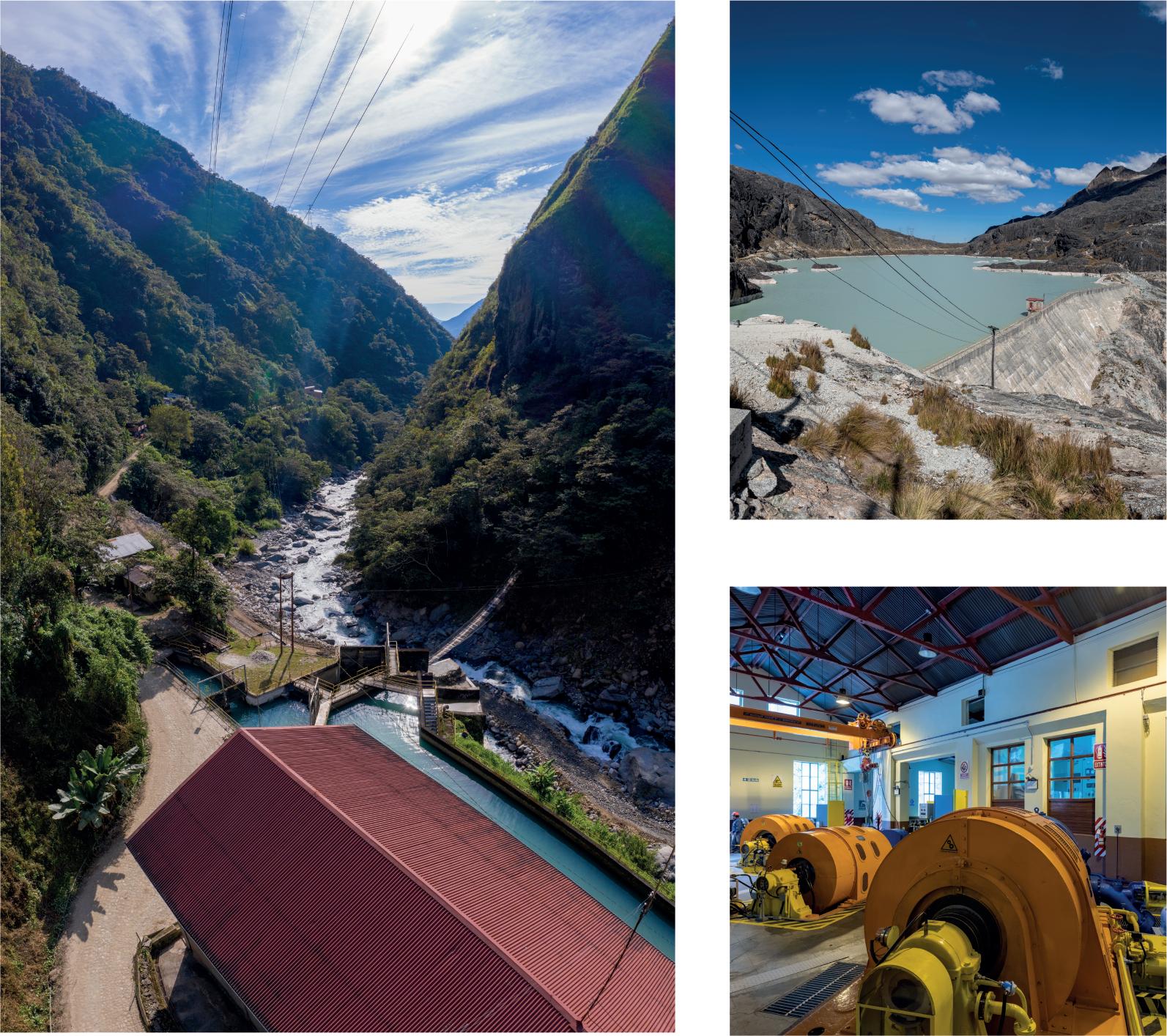
Cobee’s Social Management unit is in charge of several activities of social benefit and impact, the main ones being: (1) it supports the development of local entrepreneurial skills by hiring entrepreneurs from the communities located in the area of influence of Cobee’s operations; (2) it contributes proportionally, in cash, to the subsidy of electricity consumption in low-income households nationwide (Dignity Tariff); (3) it subsidizes the cost of electricity to households in the communities present in the area of influence where Cobee operates; (4) provides free transportation to and from school for children from the communities; (5) provides scholarships to outstanding
of electric service, customer service and protection, investment requirements to ensure service coverage, the use of public property, easements required for power lines and service coverage goals, among others.
Sergio Pereira General Manager COBEE COMPAÑÍA BOLIVIANA DE ENERGIA ELECTRICA. “The greatest contribution of Compañía Boliviana de Energía Eléctrica S.A. - Bolivian Power Company Ltd. (Cobee), to the Bolivian society is that it has been operating without interruption in permanent adaptation since its creation in 1925. In addition, it is a stable source of employment, its employees have opportunities for personal and professional development by belonging to an organization that is constantly searching for better practices and technologies, adopting to the changing conditions of its environment. Cobee has overcome the adversities that have occurred in it’s history.
Optimal hydraulic adduction system design. The river-side cascade system with headwater reservoirs is an environmentally
students; (6) in coordination with local authorities, seeks to expand the activities of classification and collection at source of solid waste produced in the communities where the company operates; (7) donates in kind to homes for orphans and the elderly; and (8) supports productive or infrastructure projects, depending on their feasibility and sustainability.
Cobee is a founding partner, a major contributor and active member of AMCHAM-Bolivia, and is open to the possibility of creating new alliances, especially on renewable energy issues, as well as on rainforest conservation issues in the headwaters of the Amazon basin, where it has its hydroelectric power plants.

In Bolivia we coexist several business ecosystems based on the creative work of companies and people with multiple skills, origins, cultures, educations, technologies, markets and societies, whose greatest challenge is to solve their eventual conflicts, product of daily interaction, avoiding selfdestructive confrontation”.
In Bolivia, hydrocarbons are of great importance in the economy since almost 50% of Bolivian exports correspond to natural gas; around 36% of tax revenues come from this extractive sector and, in addition, the income derived from its exploitation provides a large part of the budgets of the different subnational governments. In March of this year, YPFB projected revenues of US$ 2.96 billion from hydrocarbon exports.
Bolivia is no an exception to the importance of the development of renewable energies, and has joined the worldwide trend that is prioritizing the installation of hydraulic, wind and solar systems that allow it to generate renewable energies and reduce not only the consumption of fossil resources but also contribute to avoid, in some way, the increase of environmental pollution. Bolivia reduced by 50% the use of
gas for electricity generation and replaced this fuel with renewable sources such as hydroelectric, wind, solar and biomass, within the framework of the national energy transition strategy, informed the Minister of Hydrocarbons and Energy, Franklin Molina Ortiz.
The authority indicated that, by instruction of President Luis Arce, Bolivia implements a policy of change in the electricity sector that responds to a constitutional mandate and international commitments that Bolivia has to help reduce greenhouse gas emissions to protect Mother Earth. “It is for that reason that we have made important investments that allowed us as a country to have, to date, an installed capacity of 1,161 MW of clean and environmentally friendly energies”, detailed the minister.
The national government, headed by President Luis Arce, has a comprehensive plan to diversify the energy matrix, incorporating renewable, cleaner and environmentally friendly energies. That is why there is a sustainable

will be incorporated, and, for the first time, geotermal.
Bolivia is currently importing refined hydrocarbons such as diesel and gasoline to meet demand. Also, the proven reserves of natural gas have entered a stage of exhaustion after having been exploited for more than twenty
years. This means that the demand for hydrocarbons, whether liquid or gaseous, has exceeded the capacity needed for domestic consumption and exports, such as natural gas exported to Brazil and Argentina.
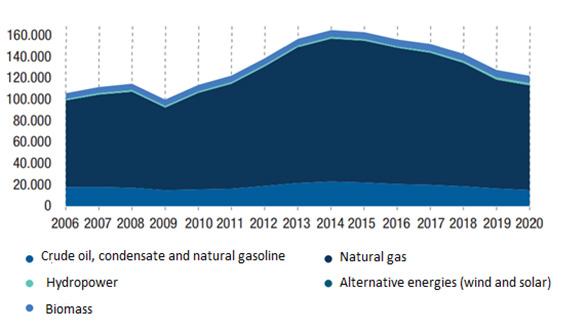
Ricardo Carrillo Gasperín GENERAL MANAGER BOLPEGAS “we are convinced that our country is a privileged country because it has a great potential of sources capable of generating renewable energies. These initiatives will contribute significantly to the effort being made to support the fight against climate change. I am passionate about energy and renewable energies...
As a consequence of this situation, BOLPEGAS, a company linked to the energy sector, decided to join the initiative and the opportunity that this transition implies, taking the necessary steps to become an important actor in the development of this activity in the Bolivian state. For the effects of the case BOLPEGAS created the unit of renewable energies and incorporated to its staff, professionals with vast experience
program for the production of biofuels that will not only reduce greenhouse gas emissions, but also generate jobs, reactivate the economy and strengthen national energy security.
The production of biofuels is a multi-benefit route, because the government of President Luis Arce not only seeks to replace imports of fossil fuels, but this strategy that Bolivia has promotes agricultural development, in addition to bringing environmental benefits.
The installed capacity of renewable energy is composed as follows: 165 MW of solar energy; 135 MW of wind energy; 127 MW of biomass energy; and 734 MW of hydroelectric energy. The objective is to continue advancing in this objective and that is why until 2025 we intend to add approximately 550 MW more of clean energy to our National Interconnected System (SIN), in which new wind, solar and hydroelectric projects
in the field, also achieving the representation for Bolivia of the solar panel factory UKSOL.
For this reason, BOLPEGAS is also expecting to reach agreements that will allow it to cooperate with foreign companies to exploit and industrially develop the Bolivian star raw material, LITHIUM.
BOLPEGAS has the necessary and sufficient conditions to assume the commercial representation of the products they manufacture for the hydrocarbon or renewable energy generation systems.
It could be said that Bolivia is still an extractivist country, it commercializes mostly the raw materials that exist in its vast territory, this situation, in itself, represents a great opportunity for those visionary entrepreneurs who would like to invest in the installation of plants to produce finished products. Feel invited to see Bolivia and especially BOLPEGAS as an opportunity to do good business”.

Advertising Supplement IGM Investments Independent Supplement For Los Angeles Times. “This supplement is printed and distributed in select areas by THE LOS LANGELES TIMES. It does not envolved the editorial staff of THE LOS ANGELES TIMES” Hydrocarbons & Energy 6
Ricardo Carrillo Gasperin Gerente General BOLPEGAS
Sergio Pereira Gerente General COBEE COMPAÑÍA BOLIVIANA DE ENERGÍA ELECTRICA
Bolivia has natural resources, that are a reference for today’s and tomorrow’s needs
The Bolivian government is definitely interested in renewable energies.
Consolidated Primary Energy Production, 2006-2020 (expressed in Kboe)
Source: Ministry of Hydrocarbons and Energy Bolivia
Unzueta President ALPHA SYSTEMS

In Bolivia, there has been moderate technological progress in recent years, but even so, the digital ecosystem in both the public and private sectors lags behind other countries in the region and is not prepared to face future challenges.
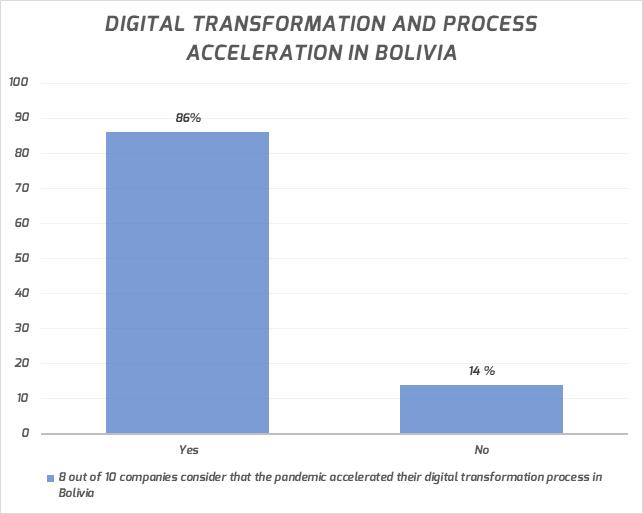
The UN (United Nations) published a report entitled: “Technology and Innovation Report 2021” in which they measured through several indicators how prepared are the

were affected by the pandemic and what they did to adapt will help to clarify this picture.
One result is that SMEs adapted to achieve a balance between productivity and welfare. Because in addition to struggling to survive, a common factor in the region, they also fought for their people, to retain them, to make them productive in the midst of all the adverse environment. Currently, more than 40% of these companies work in a hybrid model, whether it has become a raison d’être where there is the flexibility to go or stay at home, and what we see is that this will continue after the pandemic.
Technology and innovation in Bolivia are on the rise, representing a viable destination for doing business. Radical digitization trends in Latin America have reached Bolivia and innovative technology and developments are becoming more common.
In particular, the high demand for quality goods and services due to Bolivia’s large quantities of raw materials, territorial diversity and natural resources appears to be driving constant innovation and entrepreneurial activity in the technology sector.
as a result of the global pandemic, I believe it is still insufficient, first because there has been a need for a home office.
At Alpha Systems before the pandemic and the quarantine, we already had and offered, as part of our portfolio of solutions, precisely to give companies the possibility of remote work. As an industry and as a company we have been fortunate that the pandemic
for our customers in Bolivia by being representatives of the most important lines in technology, for example, helps us to provide first class support to our customers.
countries for the technological and innovation changes that will happen in the coming years. One of those indicators they measured is called: “Readiness Index” Bolivia obtained a score of 0.24 (1 being the best score, and 0 the worst score) and in the ranking table is ranked # 116 out of a total of 158 countries. It is only above countries such as: Senegal, Nigeria, Honduras and Congo.
The new normal is here to stay. Our new way of working will be hybrid. At the management level, there is talk of promoting a culture of happiness. In the end, to be a successful leader, need action plans for employees in these hybrid environments and manage to unify the digital world with the physical world . Technological advances do not stop and do not intend to stop.
For decision-making, for example, company managers have at their disposal technological tools
In Bolivia there is no law to promote the software industry as such, whether in the granting of tax benefits, increased public investment for the development of information technologies, etc. It should be noted that in order to do this it is necessary to first regulate this sector and then, the competent institutions must analyze and propose public policies that contribute to the growth and development of this industry.
In the Latin American region there is significant growth in the development and export of new information technologies (software), with countries such as Uruguay, Chile, Mexico, Brazil, Colombia and Argentina standing out. In Bolivia, this sector shows serious growth rates at an average annual rate of 25% in exports.
The emergence of the start-up business model and the outsourcing of IT services are current trends that are
has not affected us negatively, on the contrary, opportunities have arisen.
The greatest achievements are that we are recognized both locally and internationally, as an integrator of technology solutions, having among our main partners world-class companies such as NCR, Cisco, Dell EMC, Avaya, among others. The great contribution of Alpha Systems to the country is to provide world class solutions
This year we will reach 150 employees. Our turnover is around USD 20 million and annual sales growth is between 5% to 10%.We are distinguished by our highly trained personnel, financial strength and world-class suppliers, as well as 36 years of experience in a highly dynamic industry, which has helped us to achieve certification as an AEO (Authorized Economic Operator).
Our relationship with the U.S. is through the brands of U.S. companies. We have a strong relationship with AMCHAM and we are open to increasing our alliances with U.S. companies”.
such as data analytics and other products that help to sort and visualize data. They are getting to know this technology, using it and teaching it to their teams.
Adaptability is the ability of a person or object to adapt to a new environment or situation. So when we talk about technological adaptability we refer to the ability of a technology to respond quickly to changes and new trends that arise; to continue to function optically and to be able to continuously adapt to changing technologies.
This is done in order to ensure that their skills remain relevant to companies. The technology assessment starts from a regional perspective. The pandemic, like everywhere else in the world, marked a turning point and forced companies to accelerate their digital transformation. In Bolivia, in particular, how SMEs
accelerating the pace of growth in this industry.
There are opportunities for Bolivian companies in potential export markets such as India, China and Germany. These are the markets with the highest growth rates in software consumption.
The software industry is the main means of transformation of the current economic system to a digitalized economy, so the government has the main challenge of promoting its development. In Bolivia, as it is not a sector regulated by tax regulations, it is not possible to know exactly the total movement of exports of this industry in the country.
For JAIME UNZUETA PRESIDENT ALPHA SYSTEMS SRL ALVARO TABORGA GENERAL MANAGER ALPHA SYSTEMS. “Although there has been a shift towards technology in the last two years

Advertising Supplement IGM Investments Independent Supplement For Los Angeles Times. “This supplement is printed and distributed in select areas by THE LOS LANGELES TIMES. It does not envolved the editorial staff of THE LOS ANGELES TIMES” Tecnology 7
Jaime
The vision is what happens in the world, make available to companies in Bolivia, so it has much to do, it is time to invest in the technology sector.
Technology in Bolivia has been evaluated since the pandemic because of the importance of knowing how to adapt to different scenarios; adaptation is the key to progress.
Future requirements
In this sense, more than 84% of SMEs invested in technology in the last year. Among the technologies that they consider to be a priority are portable computers (77%), software for video calls (32%), as well as storage/computing in the cloud (29%) and software for collaborative work (29%).
Source: News Center Microsoft Latinoamérica, January 28 2022
Construction and development
Worldwide, the construction sector is one of the most powerful sectors to boost the economy. When it is decided to build, more than 200 items are moved and several branches are activated, that is the main reason why countries take so much care of this sector.

There is a strong interest that whatever is built in Bolivia is built by Bolivian companies and Bolivian workforce, but in many cases as subcontractors and not as contractors, because the requirements are too high and cannot be met by Bolivian builders.
have decreased with respect to the year 2021. The sector is waiting for these public projects with significant investment to be executed by national companies, for which they are asking for the regulations to be made more flexible according to the national reality.
For RUBEN DARIO ORTIZ PRESIDENT CORPORATION PENTAGONO SANTA CRUZ
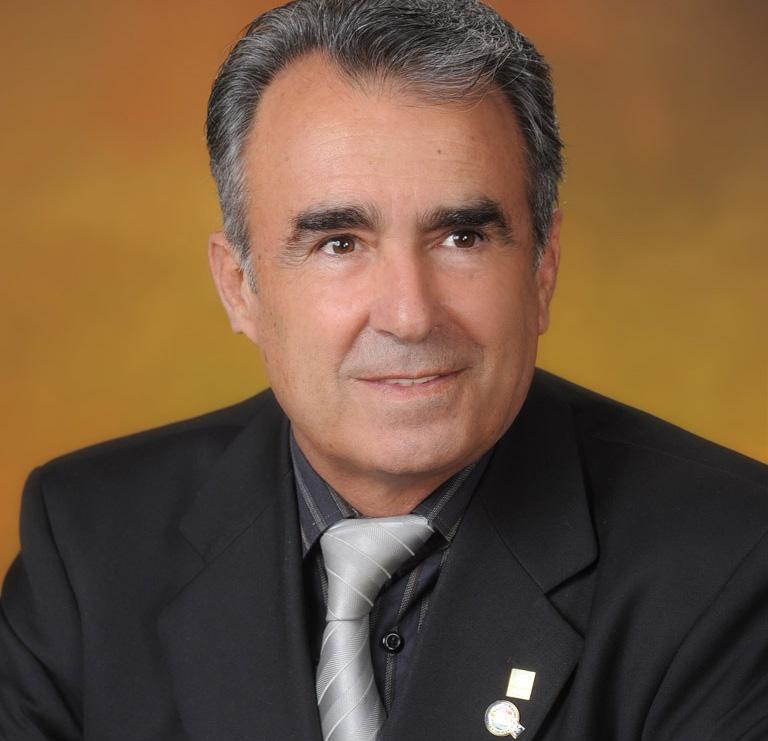
The projection is quite promising. We have created Ciudad El Triunfo, a city for 100,000 homes, 1,200 commercial sites. This whole project is USD 250 million projected for the next 5 years.
We believe that the modern company, the company of the future, cannot ignore its social context and the environment in relation to climate change and the problems that lie ahead, and Pentagon has been aware of this reality from the outset.
Regarding Corporate Social Responsibility at the beginning it was developed in an informal way but from 2015 we decided to create the SmartLife Foundation to be an organized institution, advanced, dedicated to support society especially in what corresponds to human development because we believe that if you raise the level of human development in a society is the way to solve many social crises such as crime, job security

By March 2022, the construction sector increased cement production and sales by 16.5% and 13.8%, respectively, in the domestic market, compared to the same period last year, according to data from the National Statistics Institute (INE).
Construction was one of the three sectors that contributed to the growth of the Gross Domestic Product (GDP), according to INE. The Gross Domestic Product (GDP) of the construction sector reached a growth of 17.89 percent in 2021.. Cement production in the country increased 24.5% and cement sales increased 21% through February of this year. This positive performance shows that the construction sector is recovering, despite the fact that building permits fell 14.5%. another indicator is steel consumption,
At the time, representatives of the sector indicated that the greater dynamism is due to the support from the private sector, and not so much from the public sector, due to the lower resources of the sub-national governments. The Government has budgeted more than US$ 5,000 million in public investment for the current administration, with the aim of boosting the domestic market.
FEDERICO DIEZ DE MEDINA GENERAL MANAGER ENABOLCO
During the first year of it’s creation, in 1982, it invoiced USD 50 thousand per year and three years ago it reached USD 14 million. During all this time it has had a sustained growth of more than 15%, the pandemic caused by COVID 19, damaged sales and production. Currently, national and foreign investments are being activated throughout the country, especially in the construction sector. And the area of metallic constructions has grown substantially this year, mainly due to private sector investments in agricultural projects in Santa Cruz, in the east, and mining projects in the west.
The great difference with respect to other companies in the sector is the technological capacity, the know-how acquired during all this time in all areas and mainly in design, calculation and manufacturing in all processes. In assembly we have always been the leader in Bolivia because we are the first company that has developed the engineering for the calculation of the towers and it is not only about developing the engineering,
but also about improving the manufacturing processes that we have implemented year after year. We currently have the best technology in Latin America, in metallic structures and towers.
As of March 2022, the construction sector boosts the production and sale of cement by 16.5% and 13.8%, respectively, in the domestic market, compared to the same period of the previous administration, according to data from the National Institute of Statistics (INE). Construction was one of the three sectors that contributed to the growth of the Gross Domestic Product (GDP), according to the INE. In the first half of 2021, the GDP reached 9.36%, the largest share was of metallic and non-metallic minerals with 53.02%, in second place is transportation and storage with 35.43% and in third place construction with 35.29%. As will be remembered, in 2021 the national economy closed with a growth of 6.11%, and non-metallic and metallic minerals maintained the leadership with 37.68%, transport and storage with 21.80% and construction with 17.89%.
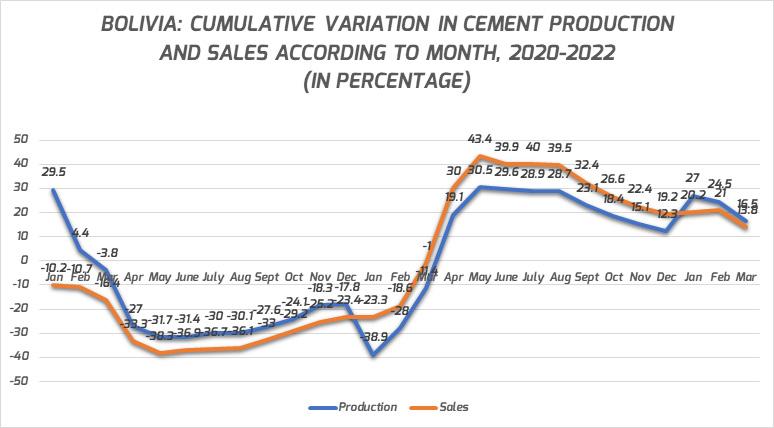
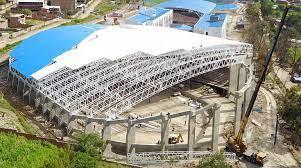
Source: Instituto Nacional de Estadística (INE)
In view of the strict regulations in force for the awarding of important public infrastructure projects, small and medium-sized Bolivian construction companies cannot be part of these programs, not even in association.
As of the first quarter of 2022, the population employed in construction showed a positive variation of 1.27% with respect to 2021. The general manager of Cadecocruz exposed that, in 2021, the construction sector contributed directly with 3.97 % to the national GDP, which represents 1.8 billion Bolivians. “The population employed in the construction activity in the urban area of Bolivia reached 377 thousand people in November 2021, higher than the 367 thousand registered in the previous month”, refers the statistical report.
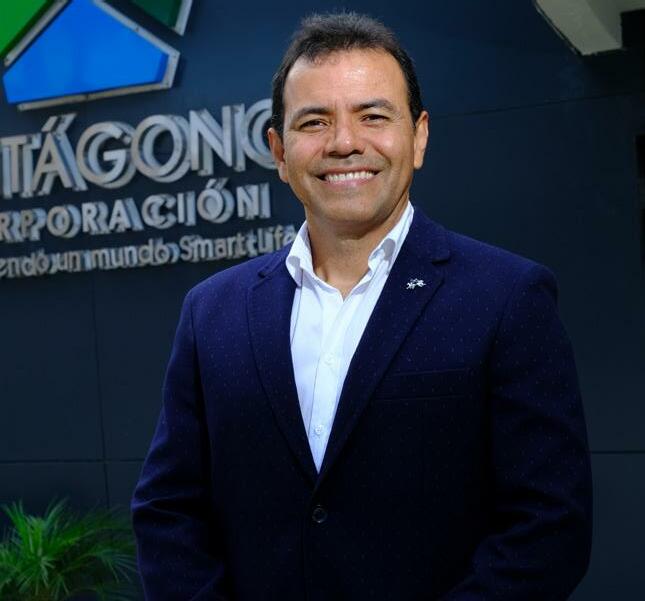
The construction sector is going through a slow recovery phase that is largely sustained by private sector undertakings and to a lesser extent by the public sector, due to the fact that both investment and projects for management
and for us this can be achieved through art, sport and culture. It could be said, but what does it have to do with art or sports, but it has everything to do, a person who practices a sporting or artistic activity at school level is a person who does not need to be taught in an orthodox way the values of perseverance, punctuality, discipline, ability to fall and get up.
The Foundation has been growing and currently supports an average of 250 projects per year. We support almost all artistic initiatives in the city because we believe that this is the way in which a company can support its society, allowing and helping people to grow internally at the level of human development.
We trust the U.S., we thank them for being at the fair and for their interest in Bolivia. Finally, as a Corporation and as Rubén Darío, we would like to tell you that all the intentions you have to invest and get to know this country are welcome, that the doors and arms are open.
which is 36% higher than last year. Construction is one of the sectors that contributes most to the economy of the regions, basically because of its capacity to generate direct and indirect jobs. It is estimated that at its best moment, 2019, the construction sector generated approximately 465 thousand direct jobs and one million indirect jobs. Always according to INE data, by August 2021 the number of direct jobs had decreased to 391 thousand people.
We have attended between 5% and 8% of the works which have been carried out in the country, the remaining 92% is work which is done by foreign companies because in Bolivia there is not the internal capacity and the economic backing to face this type of works, that is why we need partners with the availability of capital to access
much larger works. In the U.S. niche there may be people interested in investing in a company with a very interesting economic return, ENABOLCO is a good opportunity to invest.
Advertising Supplement IGM Investments Independent Supplement For Los Angeles Times. “This supplement is printed and distributed in select areas by THE LOS LANGELES TIMES. It does not envolved the editorial staff of THE LOS ANGELES TIMES” Construction 8
Rubén Dario Ortiz Presidente CORPORACIÓN PENTAGONO SANTA CRUZ
Federico Diez De Medina Gerente General ENABOLCO
Cubiertas de Odesur - Enabolco
Bolivia has a comparative advantage worldwide and that is its territory, there is a lot of land, there are no space problems.
Construction is one of the sectors that contributes most to the economy of the regions
Many business opportunities
The real estate market is the set of supply and demand actions for real estate. The nature of these goods can be very different, differentiating between residential, commercial, industrial, urban, etc., goods.
All operations related to the purchase and sale of this type of real estate make up the real estate sector, which is essential for the development of a sustainable economy in a country.
The real estate market, however, not only includes this supply and demand for real estate, but also many other important areas for the sector. We are referring, especially, to real estate development, investment, which can be made by companies or individuals, and financing, i.e. the action that allows the acquisition or development of real estate projects.
We must emphasize that the real estate market is not immobile, but is subject to changes and evolutions that can directly affect the economy itself, both at a general and particular level. In this
sense, these fluctuations of booms and busts in the real estate market and sector also influence changes in the price of housing, which can undergo significant variations both upwards and downwards.
Bolivia is an opportunity, as it is characterized by an evergrowing real estate market with a steady and stable rise in prices.
The Bolivian real estate market does not experience too much volatility.... In 2022, pre-pandemic prices have almost recovered, and until 2025, a continuous and solid growth is foreseen.
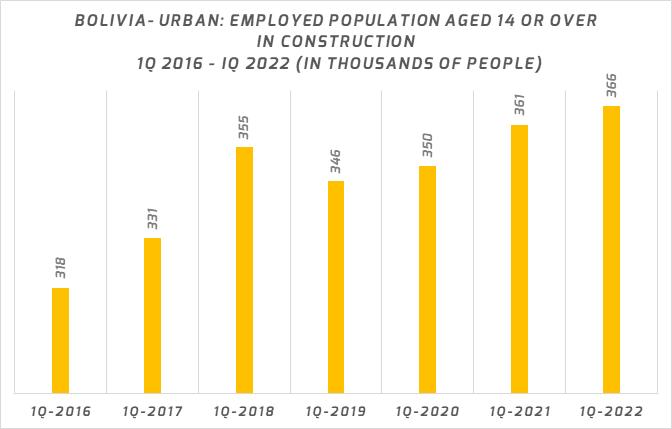
For RAFAEL PAZ EXCUTIVE PRESIDENT GRUPO PAZ - CELINA INVERSIONES S.A. B.A. in Economics and Finance and Political Science from Indiana University, a Master Class in Negotiation from Harvard and completing a Master’s degree at MIT.

“In the Grupo Paz, the real estate business is the most important through Celina Urbanizaciones. We hope in the short term to have a commercial presence of Celina Urbanizaciones in the USA, since we are privileged to have many clients living in this country. Grupo Paz is a corporate group

with eleven ventures that today reflect the success of a group dedicated to serving business development. Another of the main sectors we have focused on in pandemic has been food, which has not stopped and has grown quite a lot. Productora de Alimentos S.A. (Prodasa), performs the chick incubation process. Additionally, we have fish farming activities with different finished products.
Currently, with MultiPago and Ticketeg, we handle 90% of the most important and relevant events in Bolivia, such as sports matches, social events, concerts, business fairs, among others.
Our investments exceeded 100 million dollars and this has generated the need for around 500 people. At the rate we are going, we will grow by around 25% this year. We are moving faster and faster.
My constant curiosity have allowed us to be an innovative and versatile group, being attentive to external changes allow us to continue growing and thus we are able to provide more sources of employment throughout Bolivia. We love innovation, the important thing is that we have qualified human capital to develop business and each of the companies has a very prepared head.
nature. We dedicate a day off so that everyone can plant at least 10 trees, we are talking about more than 4,000 trees and we do not only do it ourselves as employees, we also invite family members.
The companies with which we are exploring alliances in the U.S. are in sectors in which we are specialists. I believe that networking is very important.
As a group we have a solid DNA, where our God always comes first. All my daily professional and business management activities are imbued with the spirit of service, leadership and entrepreneurship. I have my own
We plan to create a Foundation by 2023, which we intend to strengthen and extend this alliance with children, their education, health and sports. We manage the environmental impact through the constant planting of seedlings in all our housing developments, where the employees have the experience of having planted and contributed to
motto, which I share with all my collaborators, which is “When you are called to lead, you are called to serve”.
Advertising Supplement IGM Investments Independent Supplement For Los Angeles Times. “This supplement is printed and distributed in select areas by THE LOS LANGELES TIMES. It does not envolved the editorial staff of THE LOS ANGELES TIMES” Construction 9
Rafael Paz Presidente GRUPO PAZ
More conscientious business managers is what any country needs, especially a developing country.
The real estate sector influences construction, and consequently employment and the country’s economy.
The population employed in the construction activity in the urban area of Bolivia reached 366 thousand people in the first quarter of 2022, a figure higher than the 1Q of 2021, by 1.3%.
Source: INE Elaboration: CABOCO








 FERNANDO SAAVEDRA GERENTE
FERNANDO SAAVEDRA GERENTE























 LEO FLEIG GENERAL MANAGER ASESCOR S.R.L.
LEO FLEIG GENERAL MANAGER ASESCOR S.R.L.



















